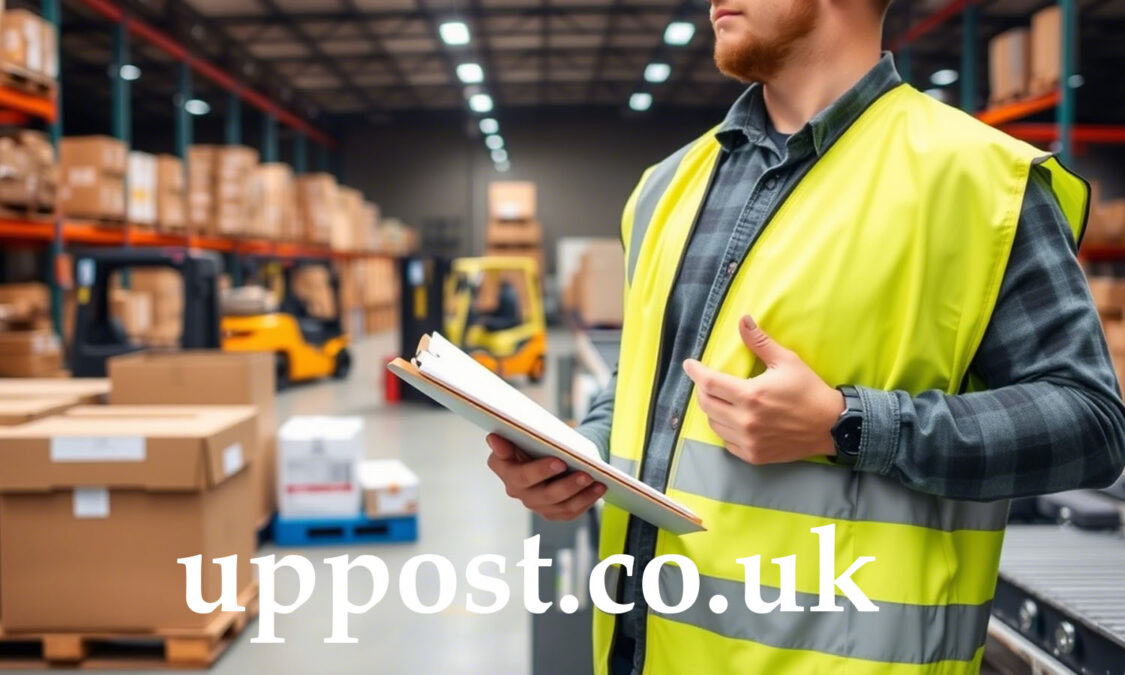In today’s fast-paced global market, the logistics industry is evolving rapidly. Traditional supply chain processes have given way to more efficient, technology-driven solutions that promise quicker delivery times, lower costs, and enhanced customer satisfaction. Among the innovations leading this change is a concept known as Logisths.
Logisths represents a transformative approach to logistics, merging the latest in automation, data analysis, and customer service technology. The goal of this article is to explore how Logisths is shaping the future of logistics services and why it is becoming a game-changer for businesses around the world.
What is Logisths?
Logisths is a comprehensive logistics system designed to streamline the movement of goods from one place to another with increased efficiency and reduced operational costs. By utilizing cutting-edge technology, Logisths integrates various logistics functions—such as inventory management, transportation, and warehousing—into a seamless process.
One of the core components of Logisths is its ability to leverage artificial intelligence (AI) and machine learning (ML) to optimize supply chains. This system can predict demand, track shipments in real-time, and automate tasks that were once manual. The outcome is faster, smarter, and more cost-effective logistics services that benefit both businesses and consumers alike.
The Role of Technology in Logisths
Technology plays a pivotal role in Logisths. Innovations like the Internet of Things (IoT), cloud computing, and robotics are deeply embedded in its infrastructure, enhancing the efficiency and effectiveness of the logistics process.
Artificial Intelligence (AI)
AI helps Logisths by predicting and responding to logistics demands with greater accuracy. For example, AI-driven software can analyze traffic patterns and weather conditions, adjusting delivery routes in real-time to avoid delays. Additionally, AI helps manage inventory, reducing the risk of overstocking or running out of stock.
Internet of Things (IoT)
IoT-enabled devices, such as smart sensors and RFID tags, track products at every stage of the supply chain. This continuous tracking ensures that businesses have full visibility over their shipments, allowing for greater control and faster responses to issues like delays or damages.
Robotics and Automation
Automation is a key driver of Logisths. With robots handling tasks such as loading and unloading cargo, companies can minimize human error and speed up warehouse operations. Autonomous vehicles, like drones and self-driving trucks, are also part of this revolution, making long-distance transportation faster and more reliable.
Benefits of Logisths in Modern Logistics
The adoption of Logisths offers numerous advantages for businesses in the logistics sector. Some of the most significant benefits include:
1. Enhanced Efficiency
Logisths eliminates bottlenecks and inefficiencies that are common in traditional logistics systems. Automation, AI, and real-time tracking ensure that the supply chain runs smoothly, reducing downtime and speeding up processes.
2. Cost Reduction
With optimized routes, fewer delays, and reduced human labor, Logisths helps companies lower their operational costs. Additionally, smarter inventory management and predictive demand forecasting reduce wastage and the need for excessive storage space.
3. Improved Customer Satisfaction
Customers expect faster and more reliable deliveries than ever before. Logisths enables companies to meet these expectations with real-time tracking and faster shipping times. By providing customers with better service, businesses can enhance their reputation and customer loyalty.
4. Scalability
As businesses grow, they need logistics systems that can scale with them. Logisths allows companies to expand their operations without the need to significantly overhaul their logistics infrastructure. This flexibility is crucial for companies that are expanding into new markets or increasing their product offerings.
5. Environmental Impact
Logisths also contributes to sustainability efforts in the logistics sector. By optimizing delivery routes and using eco-friendly vehicles, it reduces the carbon footprint of transportation. Moreover, AI-driven optimization minimizes waste, further supporting environmental goals.
Applications of Logisths

The versatility of Logisths makes it applicable across a wide range of industries. Here are some of the key sectors where Logisths is making an impact:
1. E-commerce
The rise of e-commerce has drastically increased the demand for fast, reliable, and cost-effective logistics. Logisths meets this need by automating inventory management and streamlining the shipping process, making it an invaluable tool for online retailers.
2. Healthcare
Logistics in the healthcare industry requires precise handling and tracking of sensitive items like pharmaceuticals and medical equipment. Logisths ensures that these products are delivered safely and on time, minimizing the risk of errors and delays that could impact patient care.
3. Retail
For retailers, managing inventory and ensuring timely deliveries is essential for maintaining customer satisfaction. Logisths helps retailers reduce stockouts and excess inventory, while improving order fulfillment and delivery speed.
4. Manufacturing
Manufacturers rely on a well-functioning supply chain to keep production lines running smoothly. Logisths helps manage raw material shipments, track finished products, and optimize delivery schedules to ensure that production isn’t delayed.
5. Food and Beverage
The food and beverage industry requires timely deliveries to maintain freshness and quality. Logisths ensures that perishable goods are transported efficiently, reducing waste and ensuring that products reach consumers in optimal condition.
Frequently Asked Questions (FAQs)
1. What is Logisths?
Logisths is an advanced logistics system that uses technology such as AI, IoT, and automation to streamline the movement of goods. It helps businesses reduce operational costs, increase efficiency, and improve customer satisfaction.
2. How does Logisths benefit businesses?
Logisths offers several benefits including cost reduction, enhanced efficiency, improved customer satisfaction, scalability, and a reduced environmental impact.
3. Which industries benefit from Logisths?
Logisths can be applied across many industries including e-commerce, healthcare, retail, manufacturing, and food and beverage. Each of these sectors can benefit from optimized supply chains, faster deliveries, and lower operational costs.
4. Is Logisths scalable for growing businesses?
Yes, Logisths is designed to scale with businesses. It allows companies to expand their operations without the need for significant adjustments to their logistics infrastructure.
5. What technologies power Logisths?
Logisths is powered by technologies such as artificial intelligence, machine learning, the Internet of Things (IoT), and automation. These technologies help optimize logistics operations in real time.
6. How does Logisths improve customer satisfaction?
Logisths enhances customer satisfaction by enabling faster, more reliable deliveries and providing real-time tracking information, which meets the growing demands of customers for better service.
7. What impact does Logisths have on the environment?
Logisths helps reduce the carbon footprint by optimizing delivery routes and using eco-friendly vehicles. It also minimizes waste through smarter inventory management.
8. Can Logisths be used for international logistics?
Yes, Logisths is designed to work across both local and international logistics, helping businesses streamline their global supply chains.
9. Is Logisths secure?
Yes, Logisths incorporates secure data management and tracking protocols to ensure the safety of goods and information throughout the supply chain.
10. How can businesses implement Logisths?
Businesses can implement Logisths by adopting the necessary technologies, including AI, IoT, and automation, and integrating them into their logistics processes.
Conclusion
Logisths represents a revolutionary shift in the logistics industry, combining the power of advanced technologies to create faster, more efficient, and cost-effective supply chains. By adopting Logisths, businesses can meet the growing demands of customers, reduce their operational costs, and contribute to environmental sustainability. As the logistics landscape continues to evolve, Logisths will play a pivotal role in shaping the future of global trade and transportation.
Also Read : Mexis Classroom: Transforming the Future of Education



